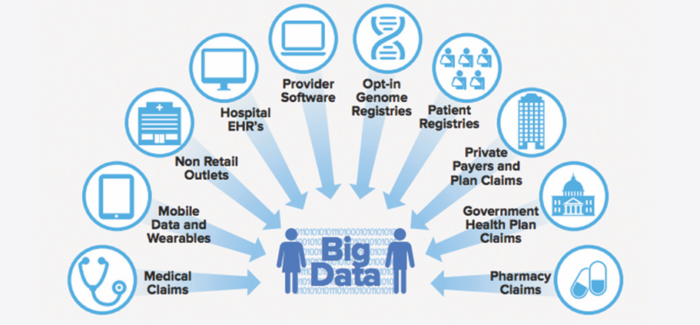
The use of big data in healthcare has the potential to transform patient outcomes. By analyzing large volumes of data, healthcare providers can gain insights into patient health and behavior, identify patterns, and develop more effective treatments. In this article, we’ll explore the benefits of big data in healthcare and how it can be used to improve patient outcomes.
The Benefits of Big Data in Healthcare
The use of big data in healthcare offers a range of benefits, including:
- Improved Patient Outcomes
One of the primary benefits of big data in healthcare is the potential to improve patient outcomes. By analyzing large volumes of data, healthcare providers can identify patterns and develop more effective treatments for patients. This can lead to improved health outcomes and a better quality of life for patients.
- More Accurate Diagnoses
Big data can also help healthcare providers make more accurate diagnoses. By analyzing patient data and identifying patterns, providers can more easily identify the underlying causes of health conditions and develop more effective treatment plans.
- Cost Savings
The use of big data in healthcare can also lead to cost savings. By identifying patterns in patient data, healthcare providers can develop more efficient treatment plans and reduce the need for costly interventions.
How Big Data is Used in Healthcare
Here are some of the ways that big data is used in healthcare:
- Electronic Health Records (EHRs)
Electronic health records (EHRs) are digital records of patient health information. EHRs allow healthcare providers to access patient data quickly and easily, and can be used to identify patterns and develop more effective treatments.
- Predictive Analytics
Predictive analytics uses machine learning algorithms to analyze patient data and predict future health outcomes. This can be used to identify patients who are at high risk of developing certain health conditions and develop preventative interventions.
- Remote Patient Monitoring
Remote patient monitoring uses digital technologies to monitor patient health outside of traditional healthcare settings. This can include wearable devices and mobile apps. Remote patient monitoring can provide healthcare providers with real-time data on patient health and behavior, allowing them to develop more effective treatment plans.
The Challenges of Using Big Data in Healthcare
While the use of big data in healthcare offers many benefits, there are also challenges that need to be addressed. Here are some of the challenges of using big data in healthcare:
- Data Quality
Data quality is a major challenge in big data in healthcare. Ensuring that data is accurate, complete, and consistent can be difficult, especially when dealing with large volumes of data.
- Privacy and Security
Privacy and security are major concerns when it comes to the use of big data in healthcare. Patients’ personal and health information must be protected from unauthorized access and disclosure.
- Data Integration
Data integration is another challenge in big data in healthcare. Integrating data from different sources can be complex and time-consuming, especially when dealing with unstructured data.
The use of big data in healthcare has the potential to transform patient outcomes. By analyzing large volumes of data, healthcare providers can gain insights into patient health and behavior, develop more effective treatments, and improve patient outcomes. While there are challenges that need to be addressed, such as data quality and privacy and security concerns, the benefits of big data in healthcare are clear. With continued investment in big data technologies and a focus on addressing these challenges, we can unlock the full potential of big data to improve patient outcomes and transform healthcare.